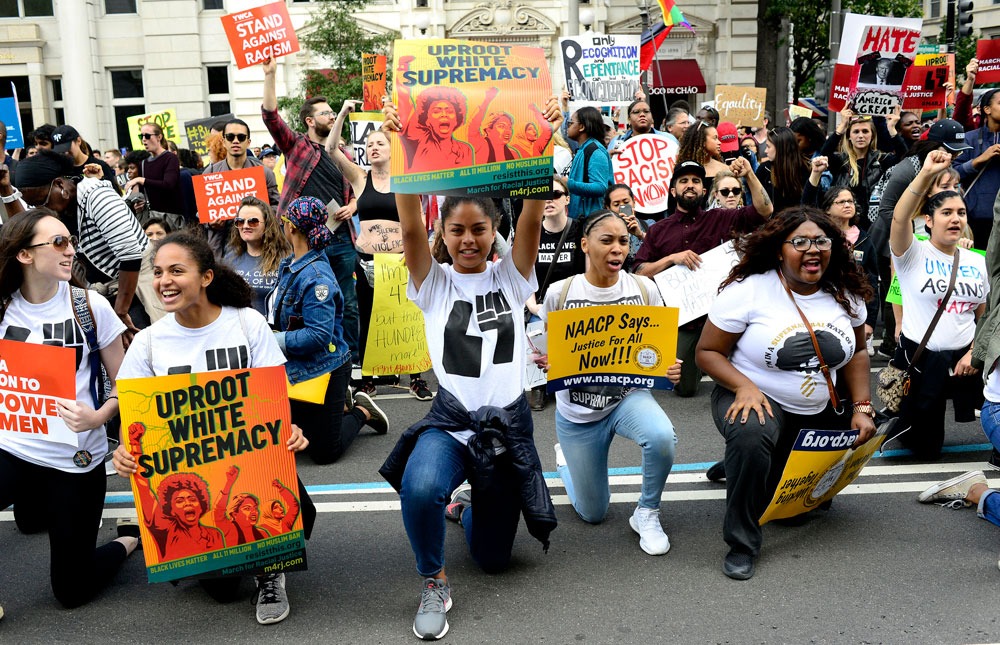
December 26, 2019; Washington Post
Increasingly, youth have made their voices heard in the public square. Indeed, rising global youth activism topped NPQ’s 2019 list of trends. The students who emerged from the aftermath of the Parkland, Florida, shooting remain steadfast in their work of rallying their peers and standing up for better gun control and gun safety regulations. Greta Thunberg is clear on climate change, unafraid to call out and shame her elders for their lack of action. And who could forget the bravery of Malala Yousafzai, the Pakistani activist for female education?
In short, young people are making themselves heard, and one large school district has taken notice. Beginning January 27th, Fairfax County Public Schools in Northern Virginia, which enrolls 188,000 students—placing it among the nation’s dozen largest school systems—will permit students in grades 7 through 12 one excused absence each school year for “civic engagement activities.” These activities can include marches, sit-ins, trips to the state capital of Richmond to lobby legislators, or other actions, according to school board member Ryan McElveen, who introduced the policy.
McElveen searched for districts with similar policies for months before presenting this one. He found no others, which means this may be a first and a model for others, according to experts who study student activism.
“I think we’re setting the stage for the rest of the nation with this,” McElveen says. “It’s a dawning of a new day in student activism, and school systems everywhere are going to have to be responsive to it.”
Sign up for our free newsletters
Subscribe to NPQ's newsletters to have our top stories delivered directly to your inbox.
By signing up, you agree to our privacy policy and terms of use, and to receive messages from NPQ and our partners.
But this policy was not greeted with universal applause and smiles. Some conservatives see this as the left “coddling” liberal, highly sensitive youth. Harvard education professor Meira Levinson sees the debate as part of an emerging dynamic where every move by a school district is quickly seen as either a “win” or a “loss” for the left or the right.
“Each side is so suspicious of the other that it’s become very hard for adults to trust what’s happening in schools is legitimate, if the other side seems to be ‘winning,’” Levinson says. “We’re all always looking for what’s the political agenda—and that’s why, with this new policy in Fairfax County, there’s going to be contestation about it.”
Thai Jones, a Columbia University lecturer who studies radical social movements, isn’t surprised that reaction to this new policy has split along ideological lines. Jones indicates that most student-led movements are left-leaning to begin with. “Plus, people who call themselves conservatives probably do still count respecting authority—staying in school—as a crucial and central tenet of the social order,” Jones says.
This new policy for Fairfax County Schools is not without its guidelines and regulations. Students must fill out a form at least two days ahead of their planned absence that explains why they plan to miss school. They must obtain permission from a parent or guardian, and they must stop by their school campus at least once on the day of their excused absence—a measure adopted to address worries about accreditation. But students don’t need an administrator’s permission. If someone at that level objects to a student’s plan, they can raise an alert to a regional administrator to intervene, but it will most likely be after the protest has taken place. This was purposeful, according to McElveen: “There is no strong definition of a ‘civic engagement’ activity,” he said, “because I think we have to be careful not to pick and choose activities.”
As we look to the future and hope that our youth will be prepared to step up and lead in all aspects of what our world needs, giving them an opportunity for a firsthand experience of their choice seems reasonable. Calling that experience political, and making it polarizing for students and the district, seems inappropriate. Fairfax County Schools is breaking new ground. Welcome to civics education in 2020!—Carole Levine













